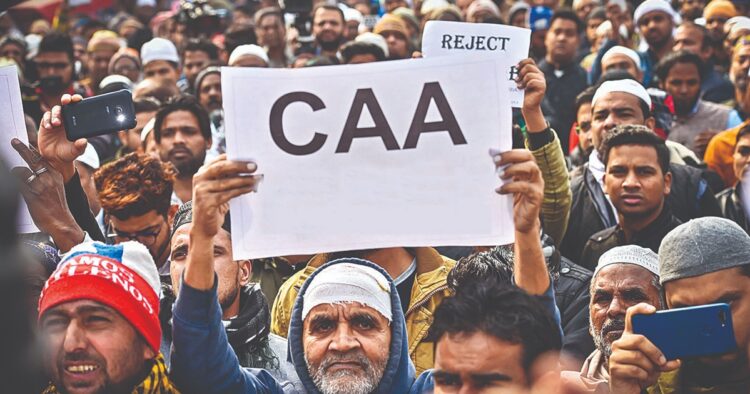The government plans to notify the rules for the Citizenship (Amendment) Act (CAA) soon, according to sources. The CAA, which aims to grant Bharatiya citizenship to Hindus, Sikhs, Buddhists, Jains, Parsis, and Christians from Pakistan, Afghanistan, and Bangladesh, faced widespread protests after its passage in December 2019. The rules, now ready, will be implemented online, allowing applicants to apply via mobile phones.
Applicants must declare their entry year into Bharat without travel documents, and no additional documents will be required. Requests from applicants who applied after 2014 will be converted based on the new rules. The government, after availing eight extensions for rule framing, plans to implement the CAA rules before the Lok Sabha elections.
Union Home Minister Amit Shah reiterated the BJP’s commitment to the CAA, addressing concerns raised by West Bengal Chief Minister Mamata Banerjee. Opposition to the CAA has been fueled by fears of demographic changes, particularly in states like Assam, where it is seen as a violation of the 1985 Assam Accord.
Despite protests and legal challenges, the government emphasizes the CAA’s specific focus on religious persecution in neighboring countries with a state religion. The law has faced petitions challenging its constitutional validity, arguing that it arbitrarily excludes Rohingyas from Myanmar, Tibetan Buddhists from China, and Tamils from Sri Lanka.
The government defends the CAA as a targeted solution to address the specific issue of religious persecution in designated countries. It maintains that successive governments acknowledged the problem without enacting legislative measures. The constitutionality of the CAA, the government argues, should be assessed within the legislative domain, considering the specific issues and reasons behind parliamentary cognizance.
As the government moves forward with implementing the CAA rules, the debate surrounding the law’s impact, demographic changes, and constitutional validity continues.

















Comments